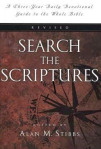Study
24 From The book of Acts Is: Acts 13:13-43
Paul’s
journey from Paphos to Antioch involved an ascent of 3600 ft from the sea coast
to a high plateau which was a flourishing region of Graeco-Roman civilization.
This probably accounts for the return of John Mark, who was thus faced with
more than he expected when he set out. Note also the presence in the synagogue
at Antioch of two classes-Jews and God fearing Gentiles (verses 16 and 26).
- In the first part of his address
(verses 16-25), how does Paul show that the coming of Jesus was the
culminating point in God’s activity in the history recorded in the Old
Testament?
- When speaking of the resurrection (verses
30-39), what does Paul say about (a) the reasons for, (b) the Old
Testament prophecies about, and (c) the result of, Jesus’s resurrection?
Of what particular blessing is it a God-Given pledge? Cf. Rom. 4:25.
Note. Verse 39. Paul here sets side by side two
contrasting methods of justification: the one, by the works of the law, failing
to achieve the end desired; the other, through faith in Jesus, bringing the
person into the immediate blessing of full justification. Cf. Phil. 3:6-9.


